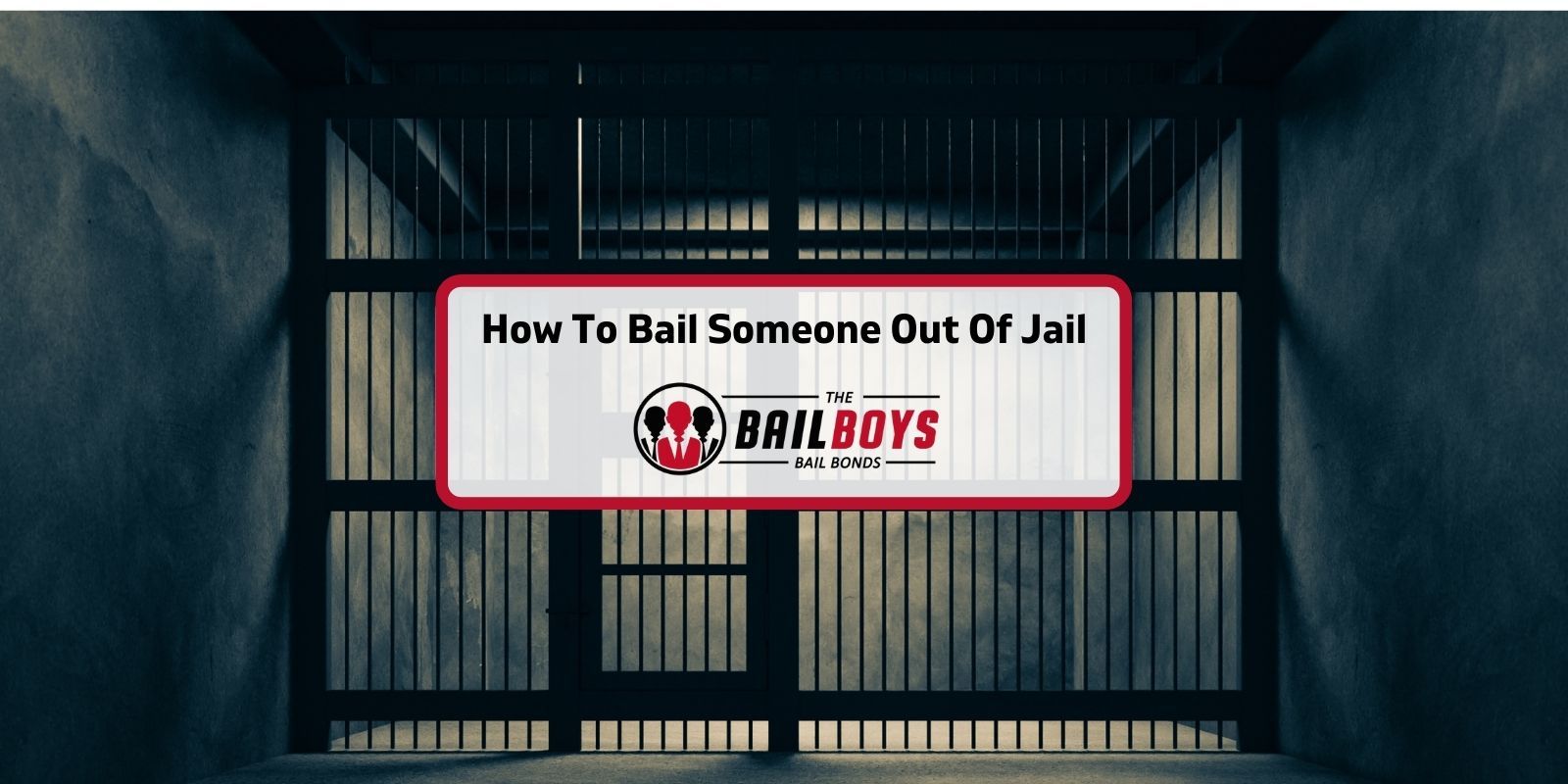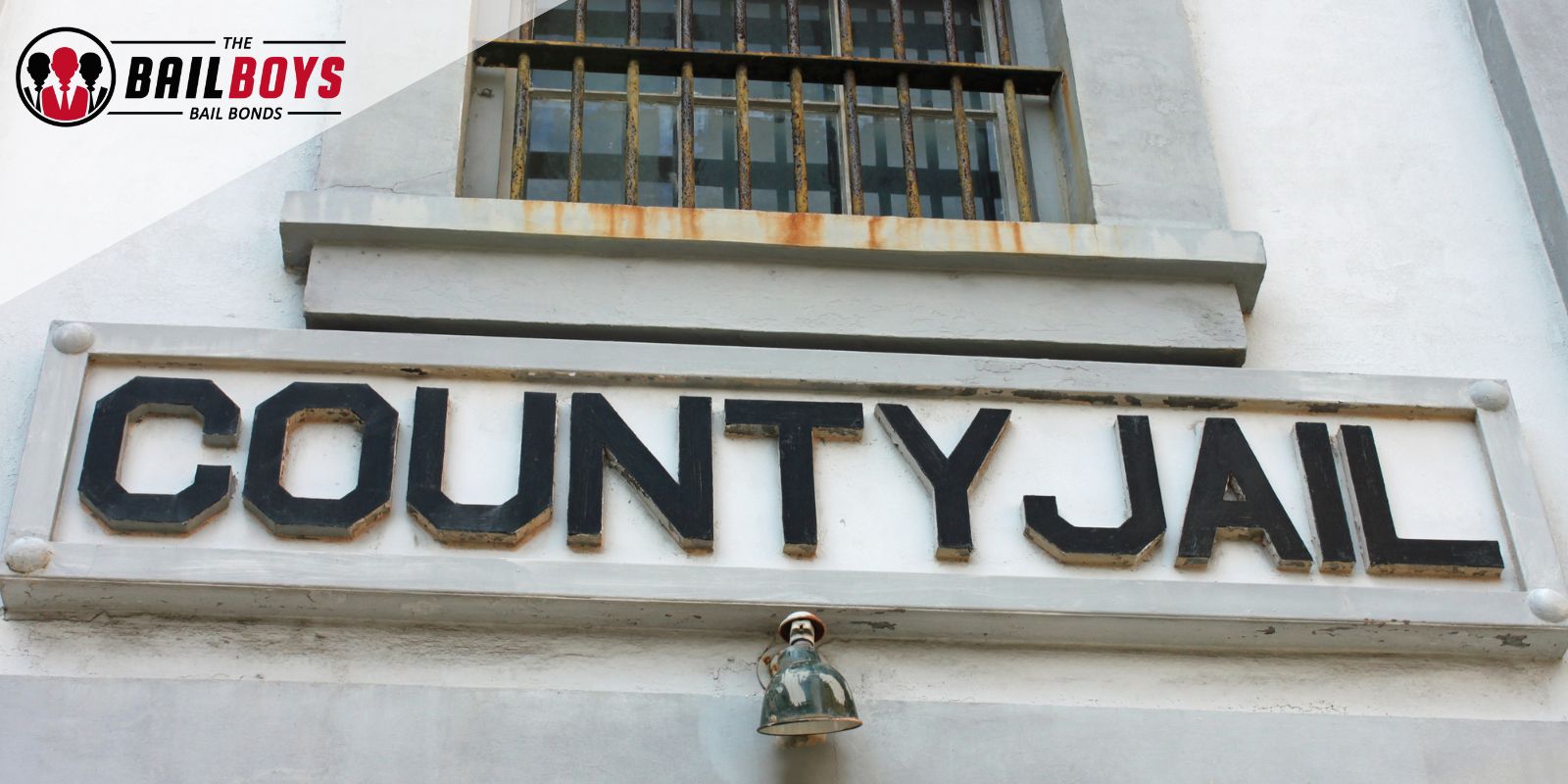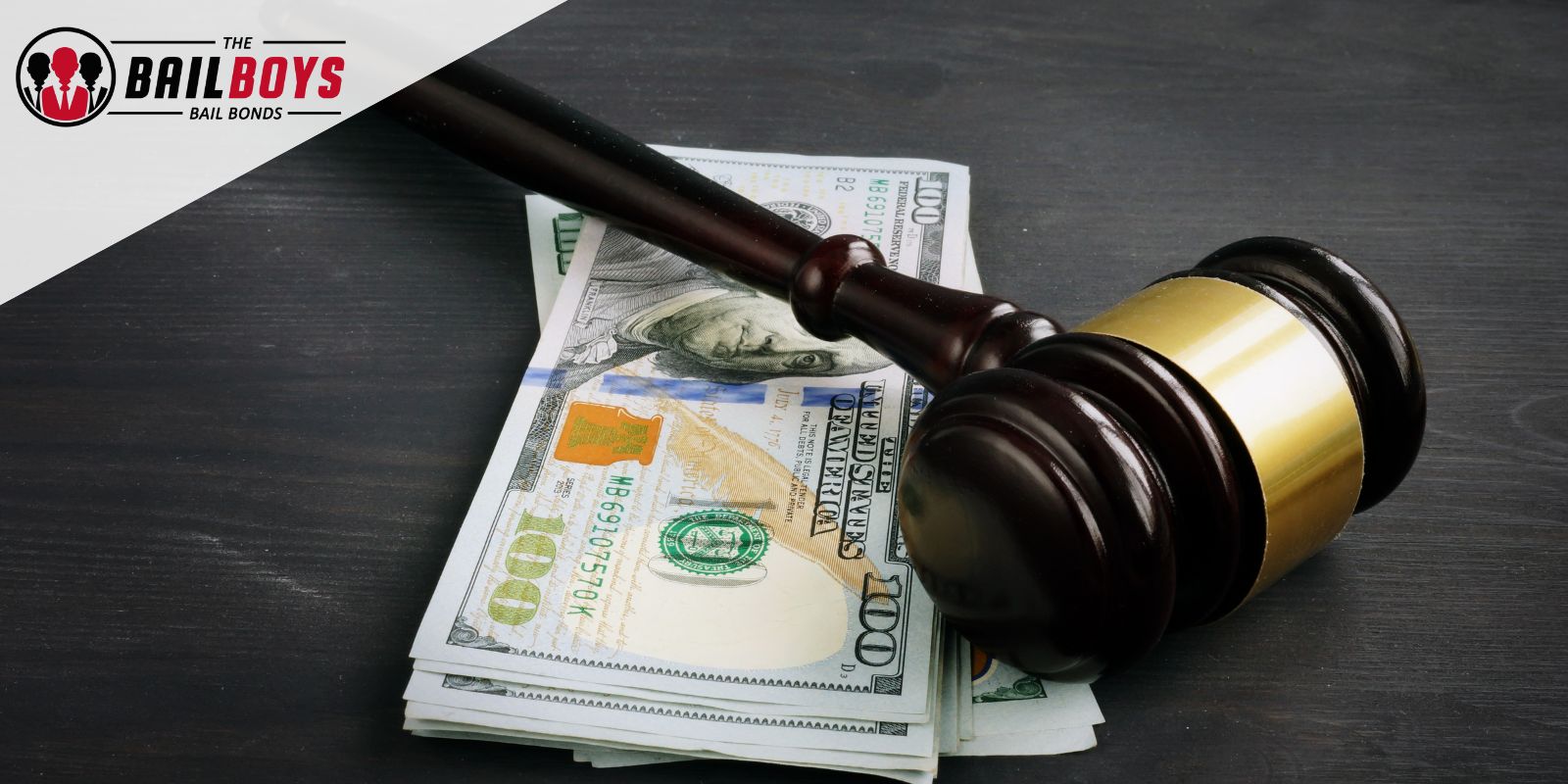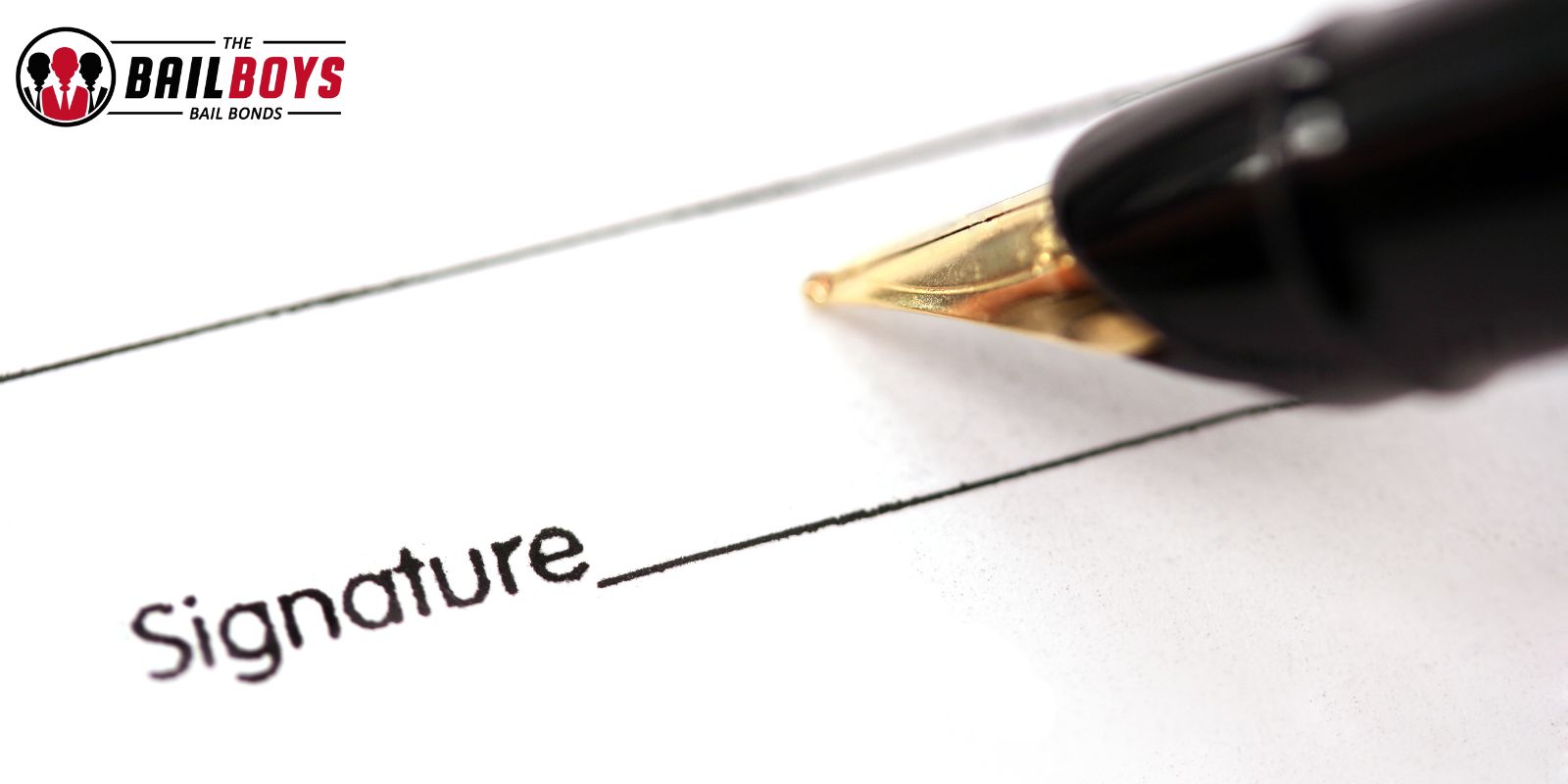
How To Bail Someone Out of Jail in California
Are you feeling overwhelmed? Don’t know how to bail someone out of jail?
Don’t worry – it’s a common experience that many people face. Understanding the ins and outs of the bail system can be a daunting task, but it’s essential for getting your loved one back home as soon as possible.
If you need help bailing someone out of jail, please contact The Bail Boys for the most affordable bail bond option in California: (800) 798-7366. One of our friendly bail bonds agents will be here for you.
This complete guide will walk you through the step-by-step process of bailing someone out of jail so that you can approach the situation with confidence and ease. With these simple steps, you’ll be able to navigate the system and reunite with your loved one in no time with the help of a trusted bail bond company.
How to Bail Someone Out of Jail in 5 Easy Steps

The process of bailing someone out of jail in California can vary slightly depending on the county where the arrest occurred, but the general steps are as follows:
- Find out where the person is being held: You can usually find this information by calling the local jail or checking online. You will need the person’s full name, birth date, and booking number (if available).
- Determine the bail amount: The amount of bail is usually set according to a predetermined bail schedule or by a judge during a bail hearing. You can find the bail amount by asking the jail, looking online, or calling a bail bondsman.
- Decide how to pay the bail: There are three main ways to pay bail in California: cash, a bail bond, or property. Cash bail requires the full amount to be paid in cash, while a bail bond requires a non-refundable fee (usually 10%) and collateral. Property bail is less common and requires the owner to offer real estate as collateral. We offer No Money down and $500 down bail bonds for your needs.
- Post bail: Once you’ve decided how to pay the bail, you can either pay it directly to the jail or through a bail bondsman. If you use a bail bondsman or bail bond agency, they will charge a non-refundable fee (usually 10%) and put up the full amount. in some cases, you might be a good candidate for your own recognizance and be absolved of bail.
- Wait for release: After you post bail, the release process can take several hours, especially if the jail is busy. Once the person is released, they will be required to appear in court at a later date.
Gathering Necessary Information
When you get that phone call from your loved one, you need to get all the information they know. It might be hard to think straight because you’re stressed and worried, but keep a level head and get all the information you can.
You need to know the bail amount or when the hearing will be if they call before that time. You also need to know what charges the police department brought against your loved one. This information will help you find them in the court system, especially if your city has multiple jail locations.
If you don’t know the person’s full name and birthdate, get it from them. You can use this information to look them up online and ensure the court and jail employees access the correct record.
As it takes time for the suspect to go through booking, there’s no need to rush this process. Before going to jail, you can check everything and get your finances in order.
How Judges Set Bail

The Bail Schedule is used by a panel of judges who dictate bail bond amount for various crimes. Some cities and counties have a set bail process for common crimes. In that case, the jail tells you the bail amount, and you pay them directly. If a judge asks for bail, you must wait for the arraignment. The suspect goes to court to see the judge and hear the bail amount. At that time, they can ask for a lower amount if they can’t afford it.
Bail Limits
If you’re wondering, “How much is it to bail someone out of jail?” you’ll be glad to know there are bail limits. A judge or government can’t set bail at an excessive amount. Bail isn’t a punishment—it’s a way to let a suspect go free until wait for the court dates for a conviction. However, some judges set high bail to keep the suspect in jail before the trial.
Bail Conditions

Knowing the bail conditions helps before you go to release your loved one. Requirements depend on the crime but often include stipulations such as:
- Obeying all laws
- Domestic violence suspects can’t contact their victims
- Drug and alcohol users must refrain from substances and submit to testing
- Most suspects can’t possess weapons
Whatever the bail conditions, you want to ensure your loved one adheres to them. If, however, the defendant fails to make the necessary court appearances, the cash bail is forfeited to the court.
Posting Bail

You can pay with cash, check, or a credit card if there’s a set bail amount. In some states, you can use property worth the full amount as collateral. Many people won’t have the money necessary to post bail themselves, which is where bail bondsmen come into play.
In some cases, the court may let the suspect go without setting bail for minor crimes or first offenders. The suspect promises to return on their court date, so the judge releases them on their own recognizance. The court trusts them to show up, so there’s no need for financial collateral.
On the other hand, some violent crimes don’t have bail. The judge might rule that the suspect is dangerous to the community and refuse to let them go free. The suspect’s criminal record might also play into the possibility and total bail amount. Employed suspects often get lower bail amounts as well, since they’re productive members of society.
Factors Influencing Bail Amount in California
When someone is arrested in California, the bail bond amount set for their release can vary. This variance is due to several key factors that judges consider to ensure the bail is fair and appropriate. Understanding these factors can help you anticipate the potential bail amount and prepare accordingly.
Severity of the Crime
Higher Bail for More Serious Offenses: Generally, more serious crimes like felonies have higher bail amounts than misdemeanors. For instance, violent crimes typically have higher bail amounts due to the perceived threat to public safety.
Impact on Victims: If the crime has a direct victim (e.g., assault, robbery), the bail amount may be higher to ensure the defendant’s limited interaction with the victim or the community.
Flight Risk
Assessment of Risk: Judges evaluate the likelihood of the defendant fleeing before their court date. Factors influencing this include past instances of failing to appear in court, having strong connections outside the state or country, or possessing the financial means to escape easily.
Bail Conditions to Mitigate Risk: In cases of high risk, bail can be set very high or even denied. Alternatively, conditions like surrendering a passport or regular check-ins with law enforcement might be imposed.
Criminal History
Repeat Offenders: Individuals with a history of criminal behavior, especially those with prior failures to appear in court, are likely to face higher bail bond amounts.
Severity of Past Crimes: The nature of previous offenses also plays a role. A history of violent or serious crimes can lead to a higher bail amount.
Community Ties
Local Connections: Defendants with strong ties to the community, such as family, steady employment, or property ownership, may have lower amounts. These ties suggest lower flight risks and a commitment to facing legal responsibilities.
Community Involvement: Active involvement in community services or local organizations can also positively influence bail decisions, indicating the defendant’s positive role in society.
Contact a California Bail Bondsman

You don’t have to manage everything alone. Bailing someone out of jail can be emotional and costly. Bail bond companies have the experience needed so everything goes smoothly and the jail releases your loved one quickly and help you navigate the bail process. When you hire a bondsman, you’ll only have to pay 10% of the total cash bail.
You can contact most bondsmen for services 24/7, especially those that offer online access. You don’t need to be in the same state as your loved one to help them out. Contact the bondsman in their location and take advantage of online services to set them free without needing to book a flight to help them yourself.
If you want to know how to bail someone out of jail with no money, then using a bail bondsman is the answer. If you don’t have the money to pay in full, you can pay 10% to a bail bondsman, and they front the rest. You won’t get the money back, but you’ll know you’re working with an experienced professional.
Sometimes 10% is still costly, so The Bail Boys offer something even better. If you qualify, you can choose from three unique options to ensure your loved one won’t sit in jail for months:
- No money down bail bonds—require no upfront payment so you can pull together the funds for later
- One percent—pay one percent of the bail bond initially and save up the rest
- Two percent—pay two percent for immediate release and complete payment later
Contact The Bail Boys today to find out if you qualify! (800) 798-7366
Certain bail bondsman help you bail someone out of jail online. If you retain their services before the arraignment, they can post bail immediately after, so your loved one gets free much quicker.
After the suspect shows up for court, your agreement with the bail bondsman is complete. You paid their fee, and they paid bail for your loved one. You won’t get money back like you would if you paid the total amount to the court, but you have peace of mind that professionals took care of this stressful process for you.
Awaiting Trial
If you’re posting bail or attending the arraignment, you can give your loved one a ride home when they’re released. The jail won’t give them a ride or help them out by arranging a ride, so make sure you take care of this process.
In cases when you can’t personally pick them up, you can arrange rideshare for them. As the police only give them back whatever they had during the arrest, they might not have money to get a cab.
Once your loved one is free, you’ll want to make sure they attend their court date. In some cases, the suspect has to wear an ankle bracelet and stay under house arrest. You can help them by running errands and visiting them. Make sure they’re following the law and not consuming drugs or alcohol. You want them in their best shape for the court date.
They mustn’t forget this date. You might have to take them to the court or arrange a ride, so they arrive on time. You’ll get the bail money back when the suspect shows up for court.
If your suspect doesn’t show up for court, the bail money will NOT be refunded. For people who hire bail bondsmen, you have to pay the total amount to them. They posted the full bail amount so your loved one could await trial from the comforts of home and trusted them to show up when required. Since they didn’t appear, you didn’t hold up your end of the bargain, and whoever signed for the bond will be liable for the total amount of bail.
If you can’t afford bail, your loved one will have to await trial in a cell. This process can take months, so you want to find their bail information as quickly as possible. A bail bond company can help you if you don’t have the time or resources to do it on your own.
How to Bail Someone Out of Jail: Real Case Scenario
In 2020, John Doe, a resident of Los Angeles, was arrested for alleged grand theft auto, a serious felony charge. The judge set his bail at $50,000, a decision influenced by several factors:
- Severity of the Crime: Grand theft auto is a felony with significant penalties, justifying a higher bail amount.
- Flight Risk: Doe had a history of travel outside the United States and no steady employment, increasing his flight risk.
- Criminal History: Doe had one prior misdemeanor for petty theft but no felonies, which was considered in setting bail.
- Community Ties: Doe had family in California and was a volunteer at a local charity, factors that worked in his favor.
Despite the high bail, Mr. Doe managed to secure his release through a bail bond service. He adhered to all bail conditions, including regular check-ins and attending all court dates, which eventually led to a favorable outcome in his case.
5 Tips for Navigating Bail in California
- Gather Documentation: Prepare documents that demonstrate strong community ties, such as proof of local employment, property ownership, or community involvement.
- Consider a Public Defender: If you cannot afford a lawyer, request a public defender who can argue for a lower bail bond amount based on your financial situation.
- Research Bail Schedules: Familiarize yourself with the county’s bail schedule for an estimate of the bail amount for specific charges.
- Plan for Bail Bond Services: If the bail amount is high, research reputable bail bond services in California that offer flexible payment plans.
- Comply with All Conditions: Once bail is posted, strictly adhere to all conditions set by the court to avoid additional legal complications or increased bail bond amounts.
Conclusion
Knowing how to bail someone out of jail can significantly help you when you get that important phone call. Take the proper steps to ensure you’re getting your loved one out as efficiently as possible.
Don’t put your life savings on the line when you can take advantage of The Bail Boys’ no-money-down bail bonds. There’s no need to face this struggle alone. We’re the professionals who can bail out your loved one anywhere in Southern California.
Contact The Bail Boys for all the help you need around the clock.


